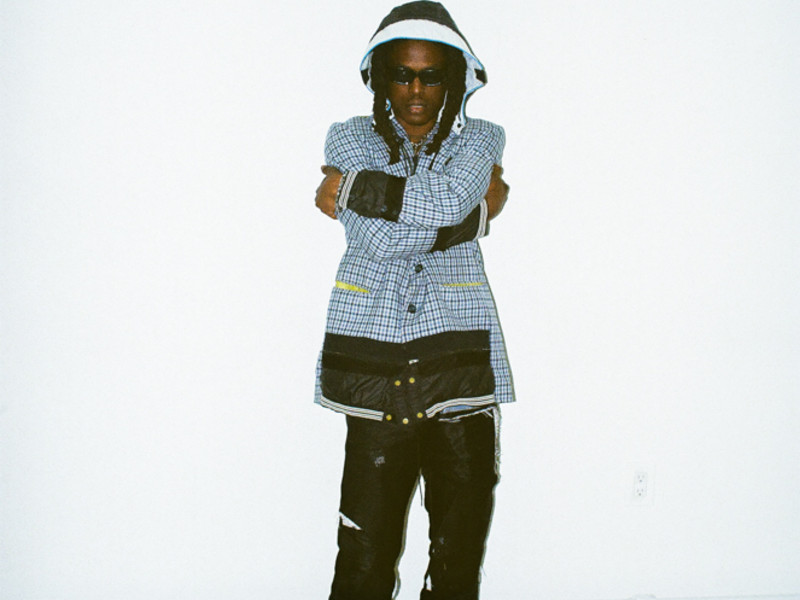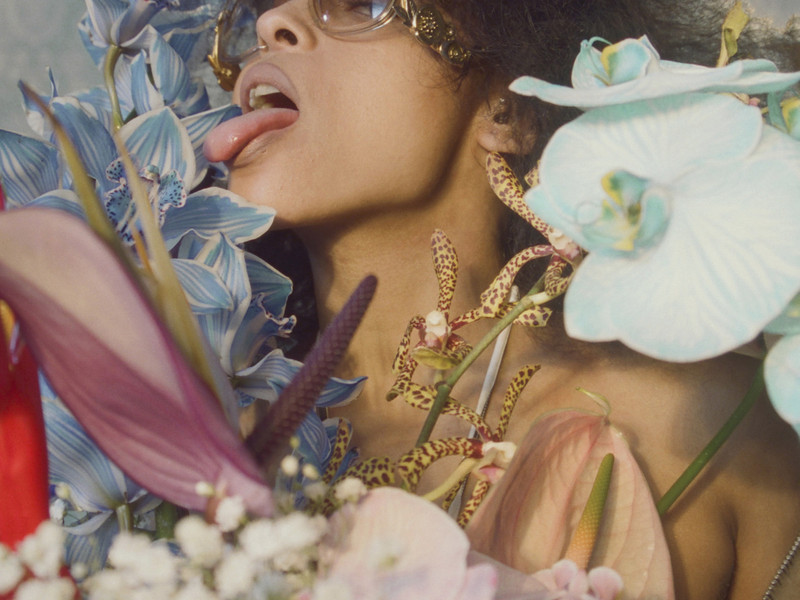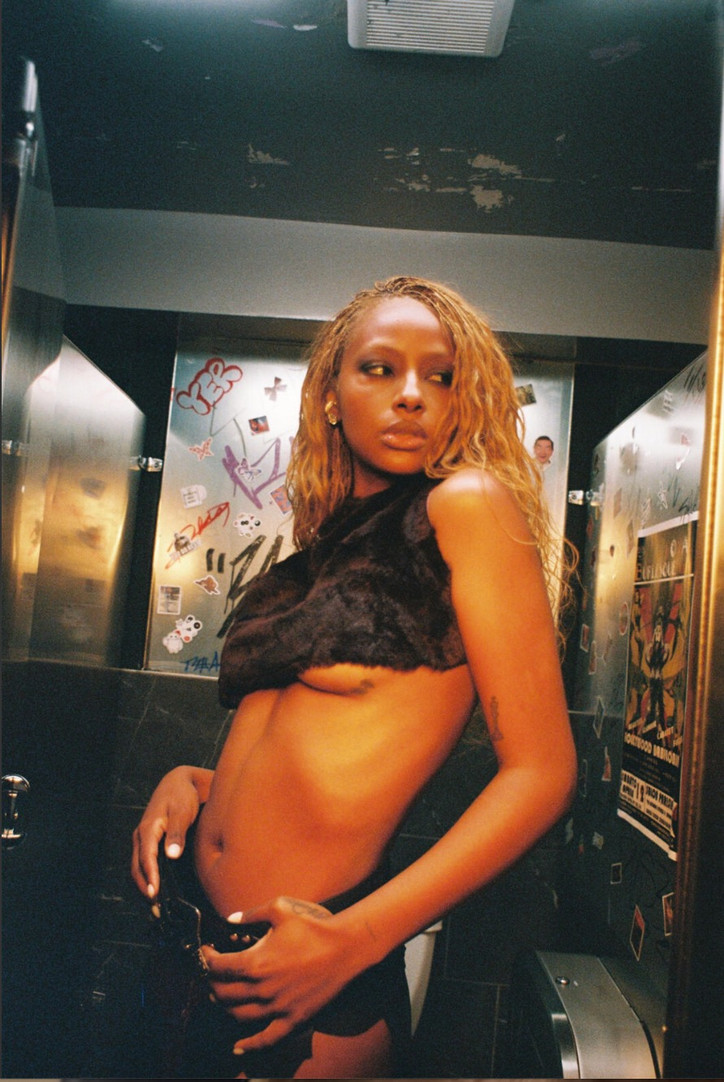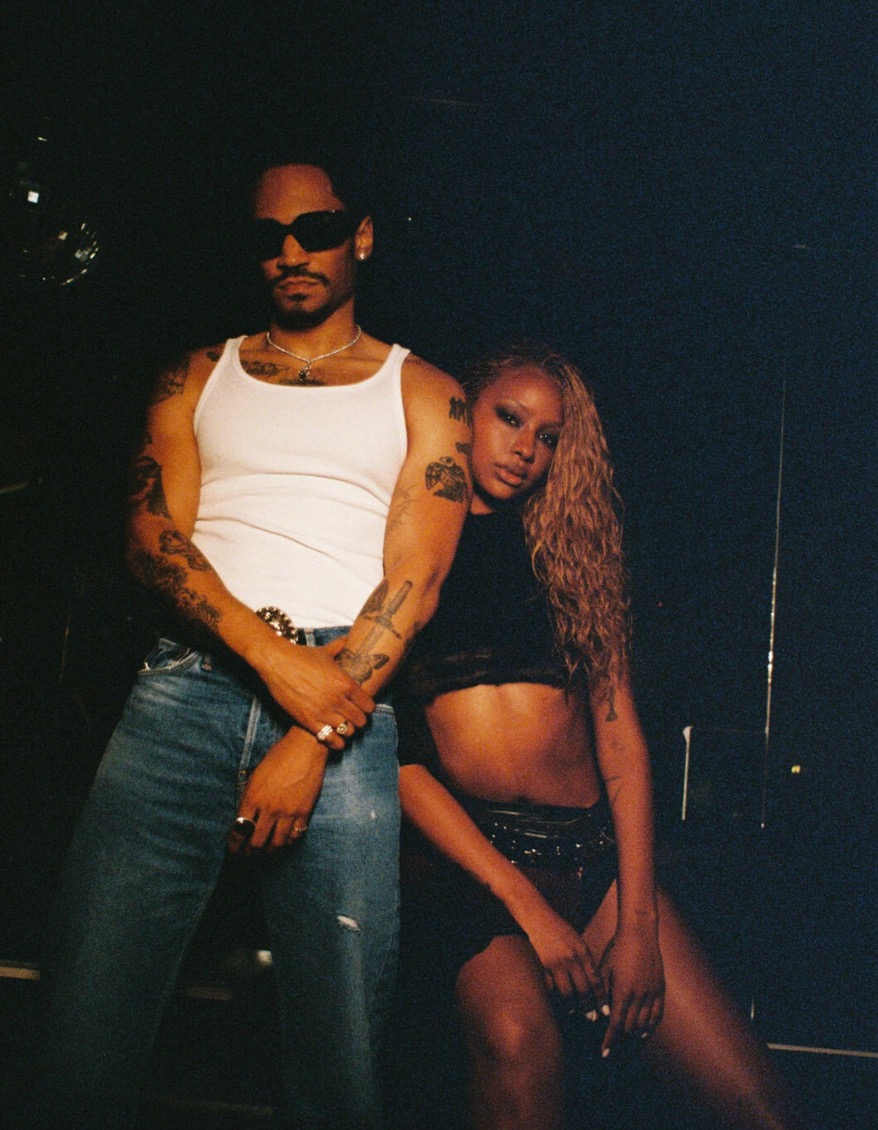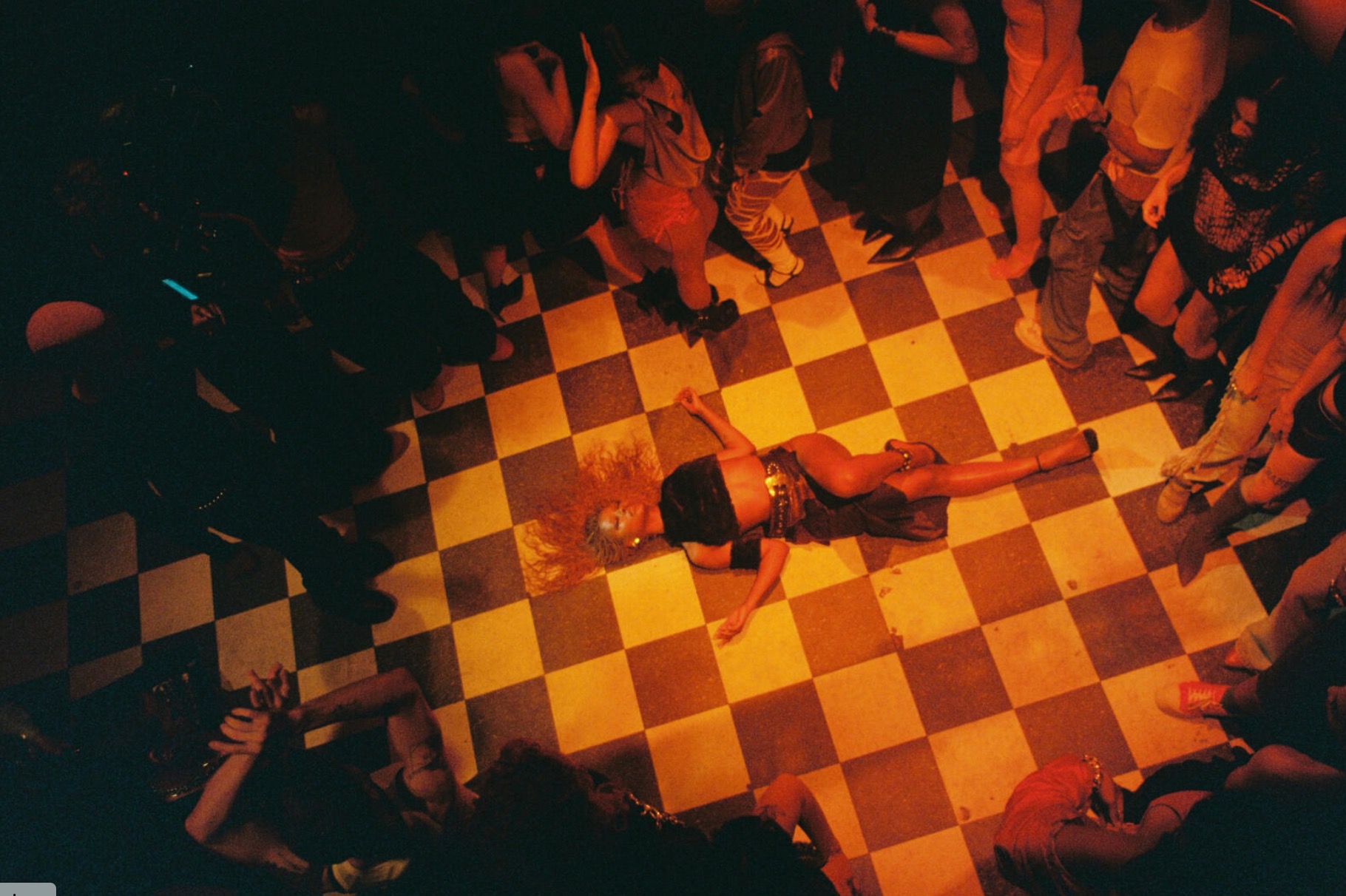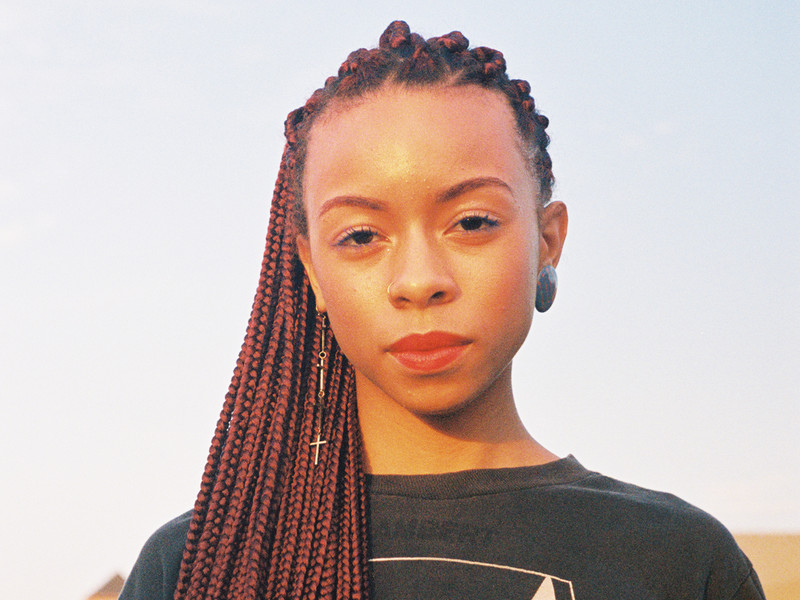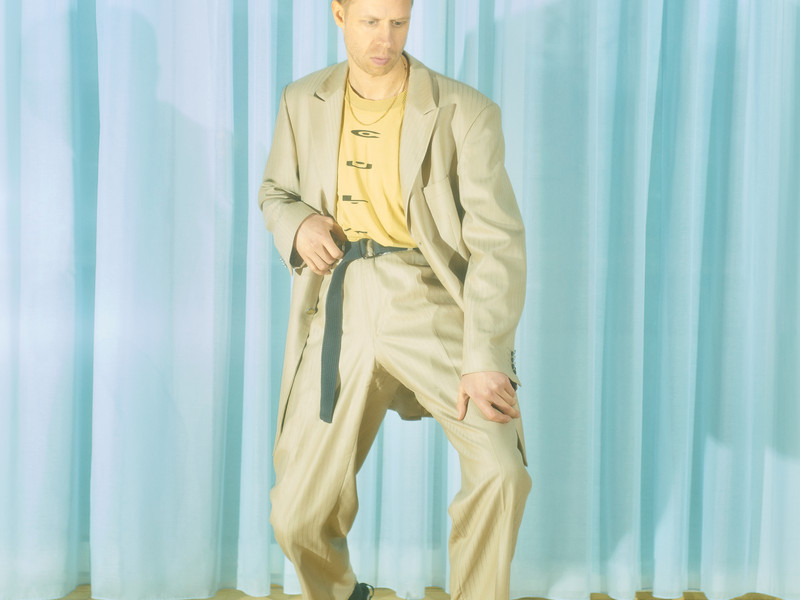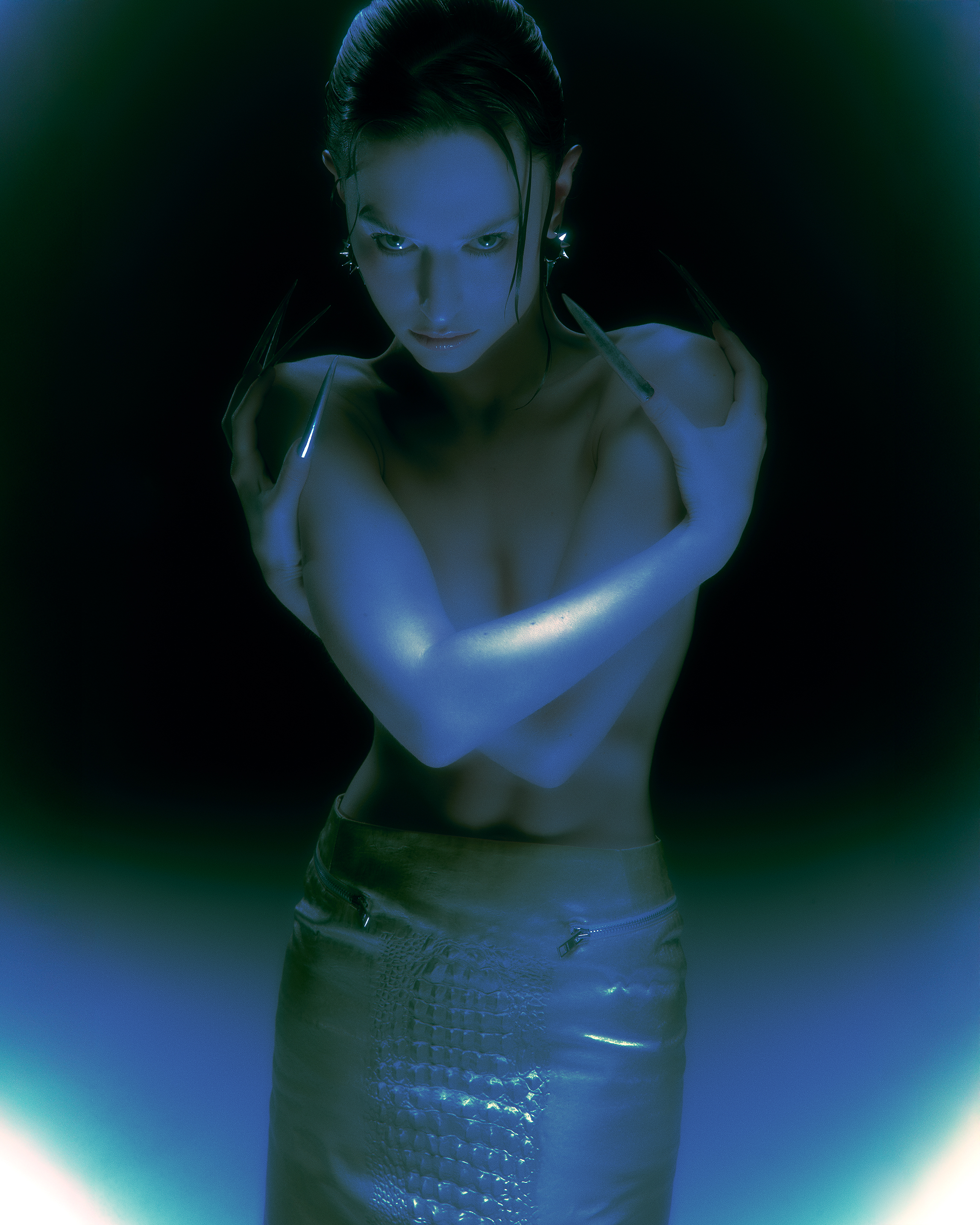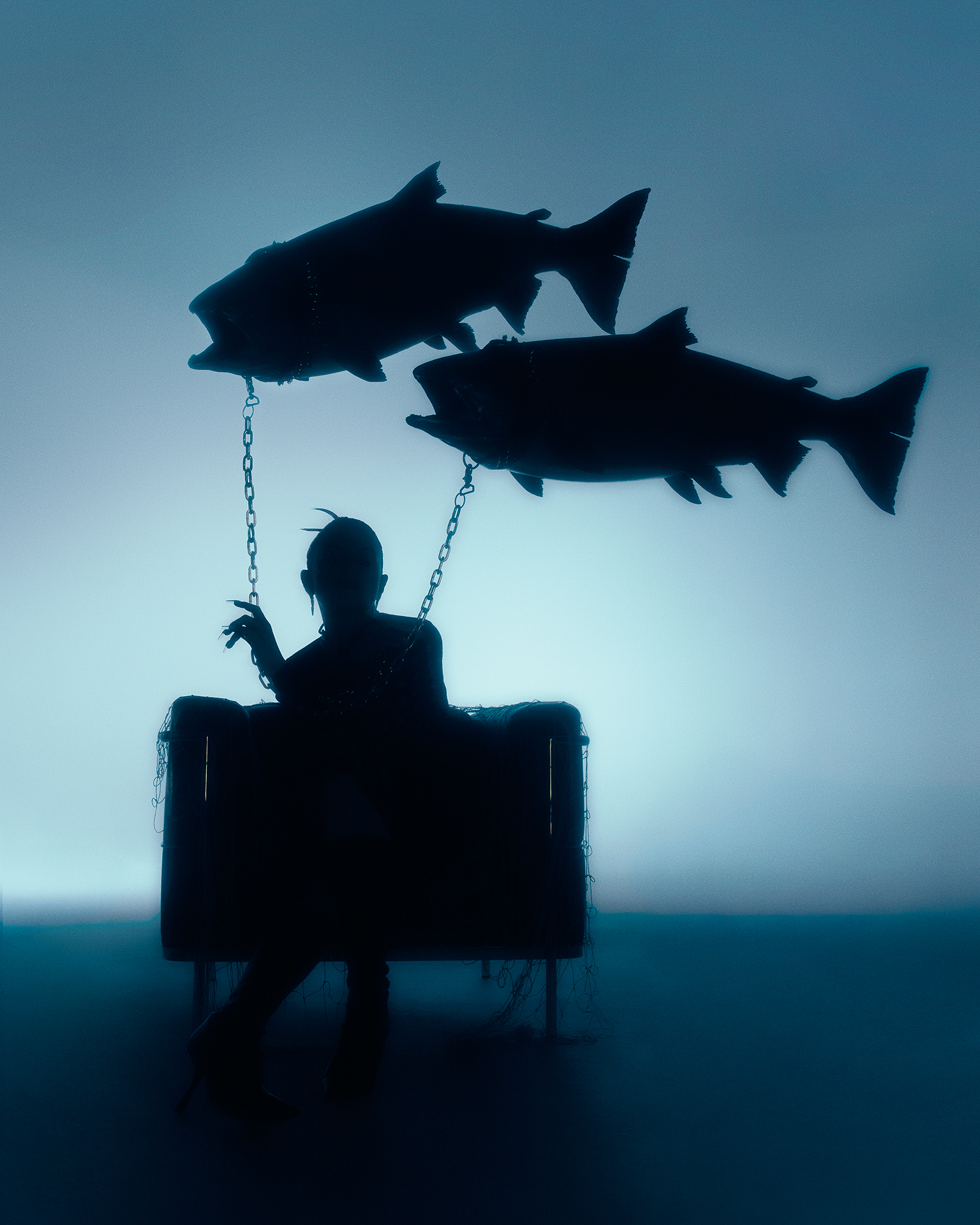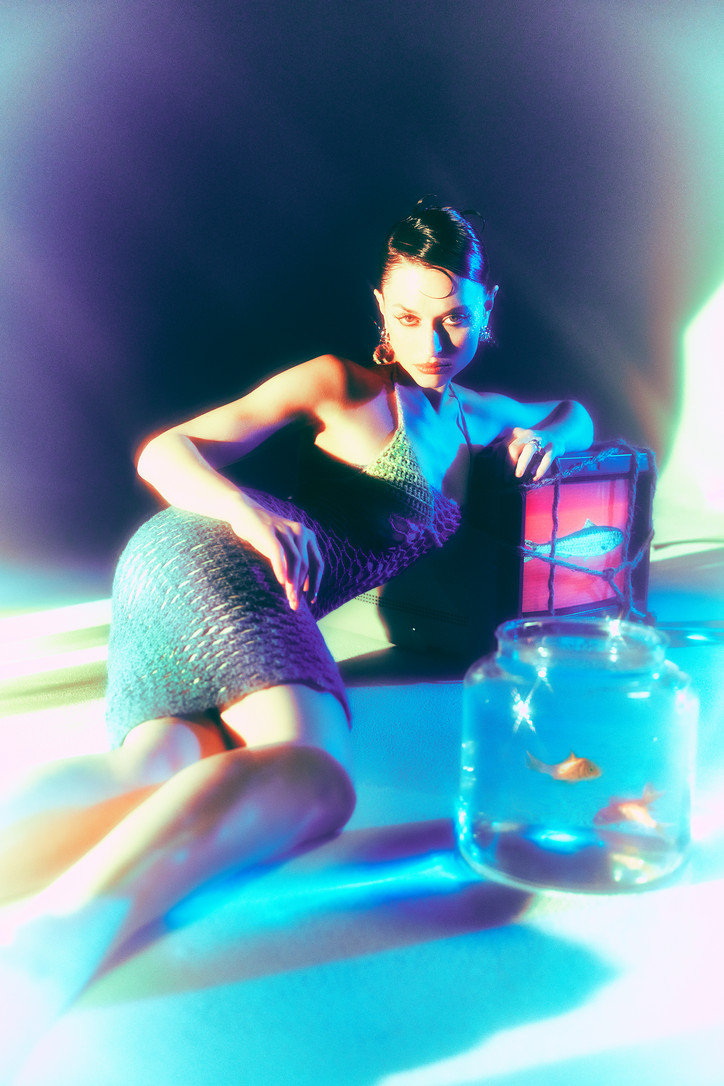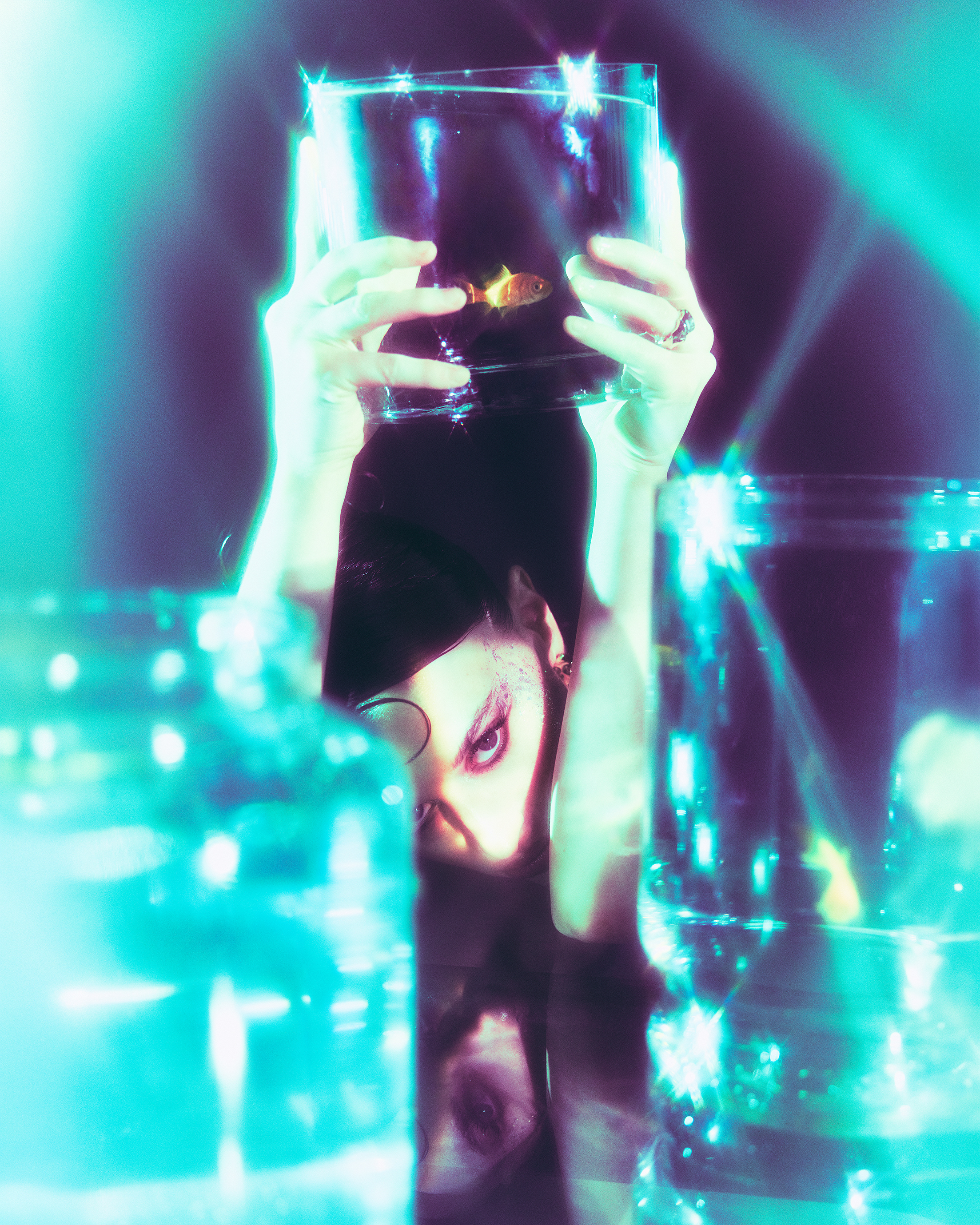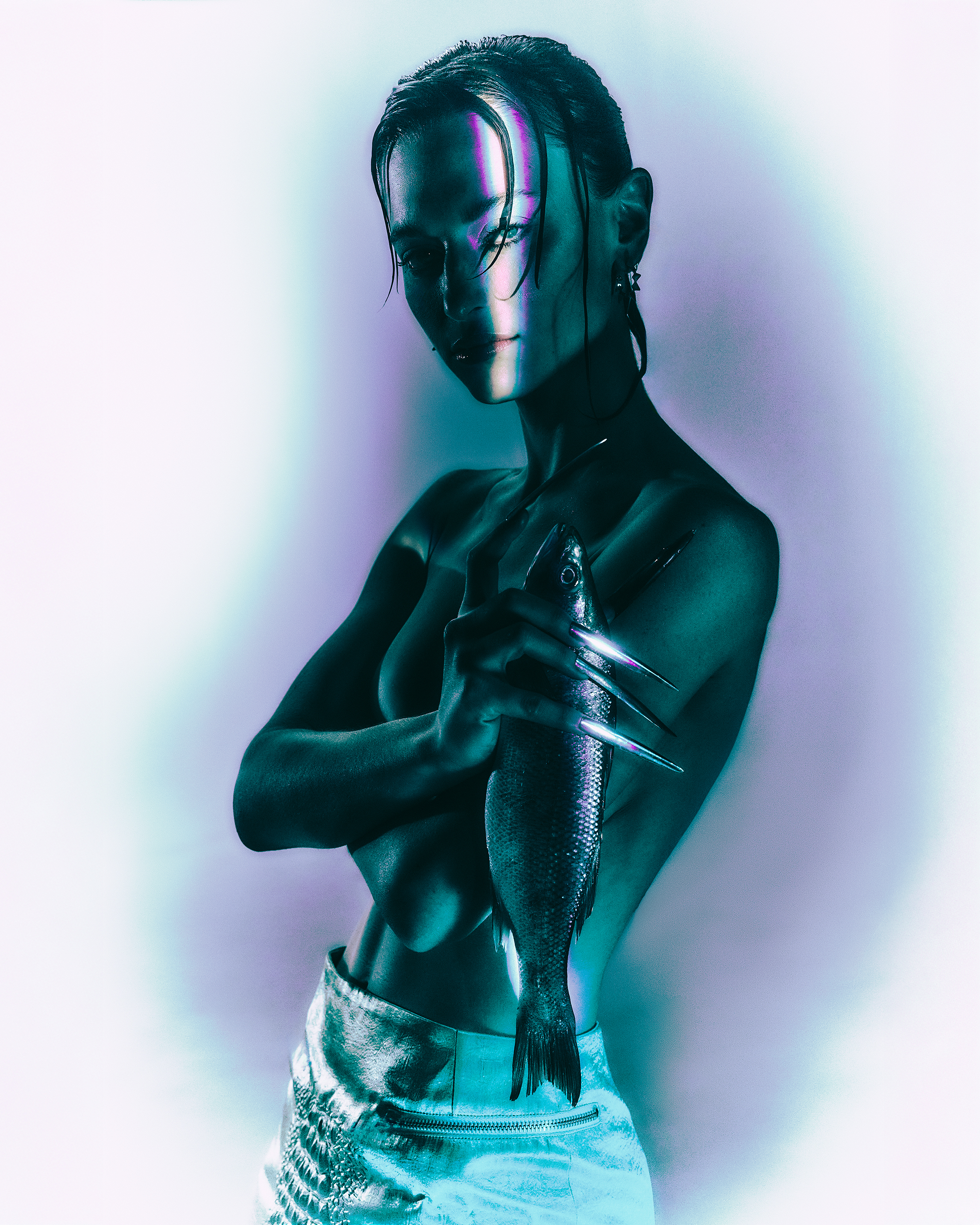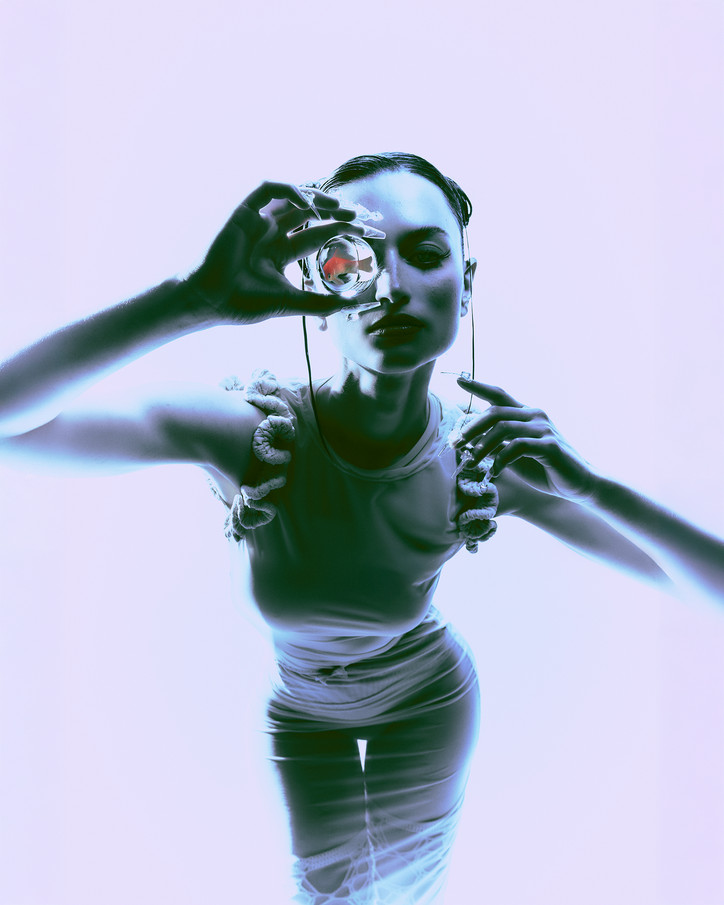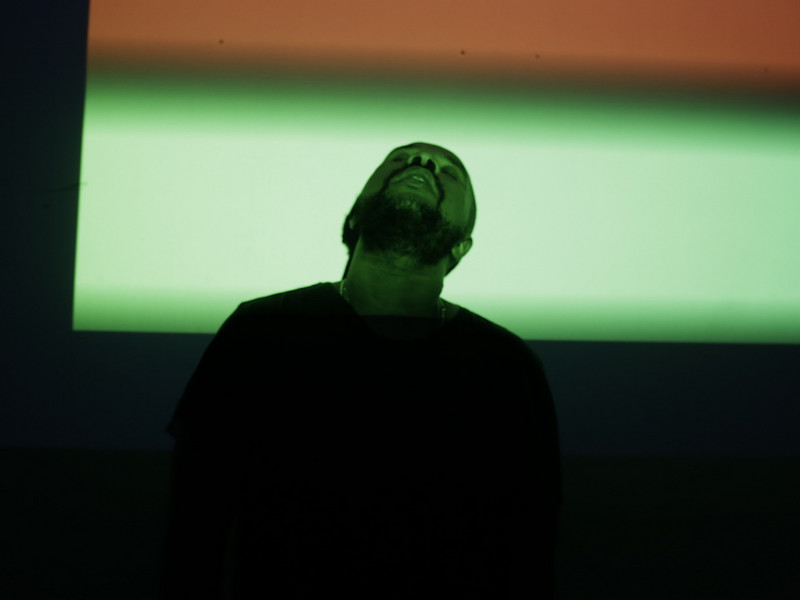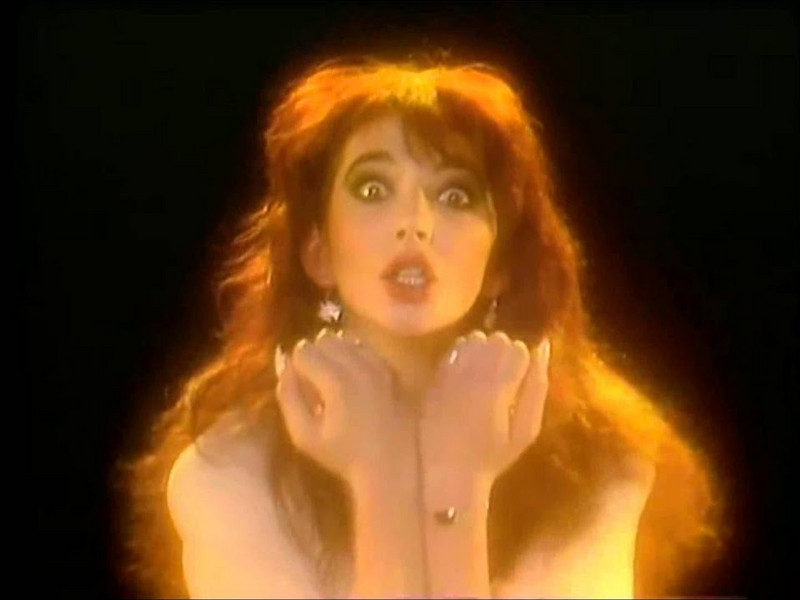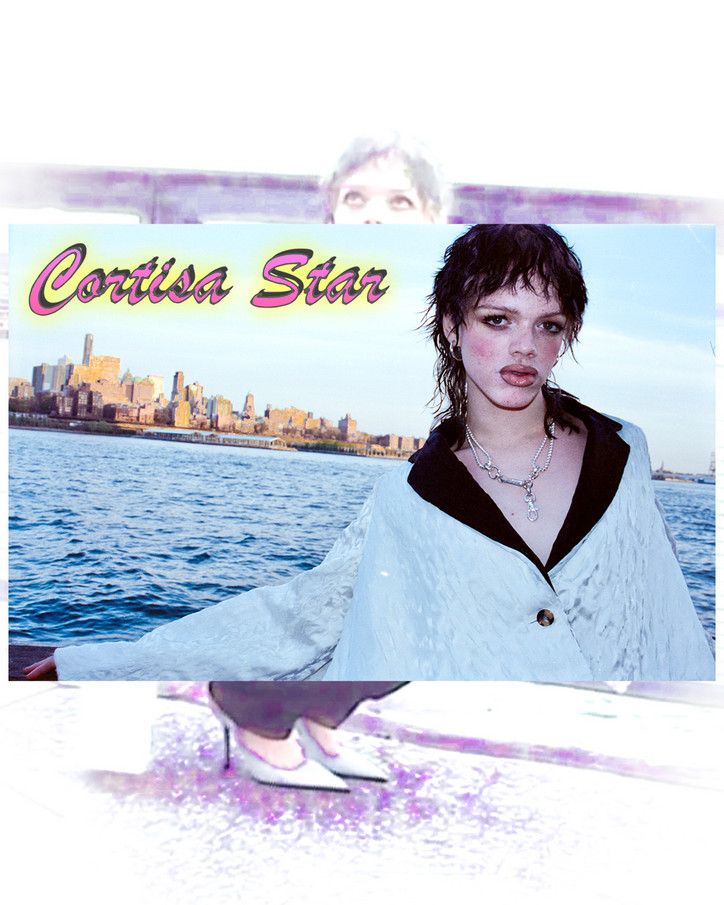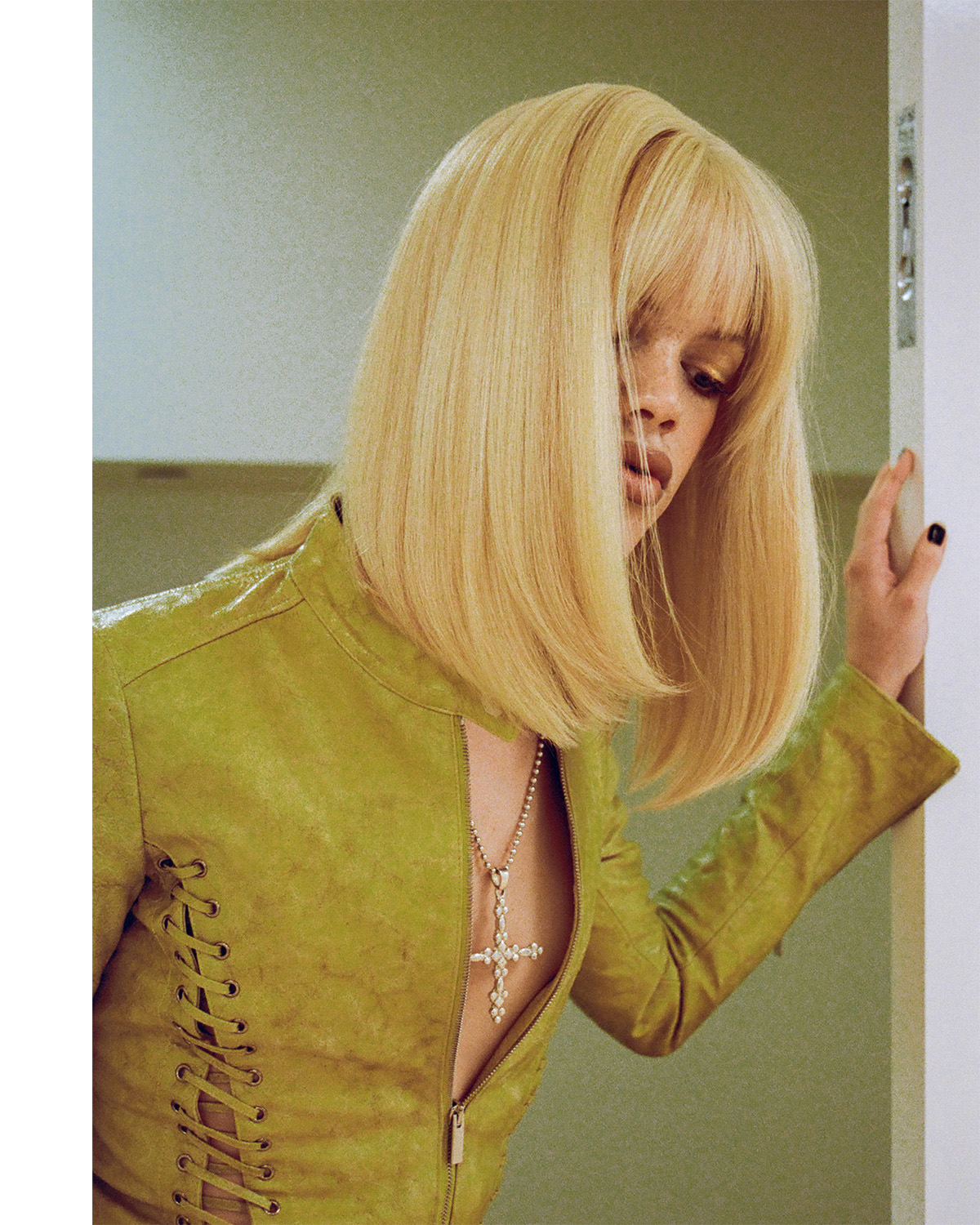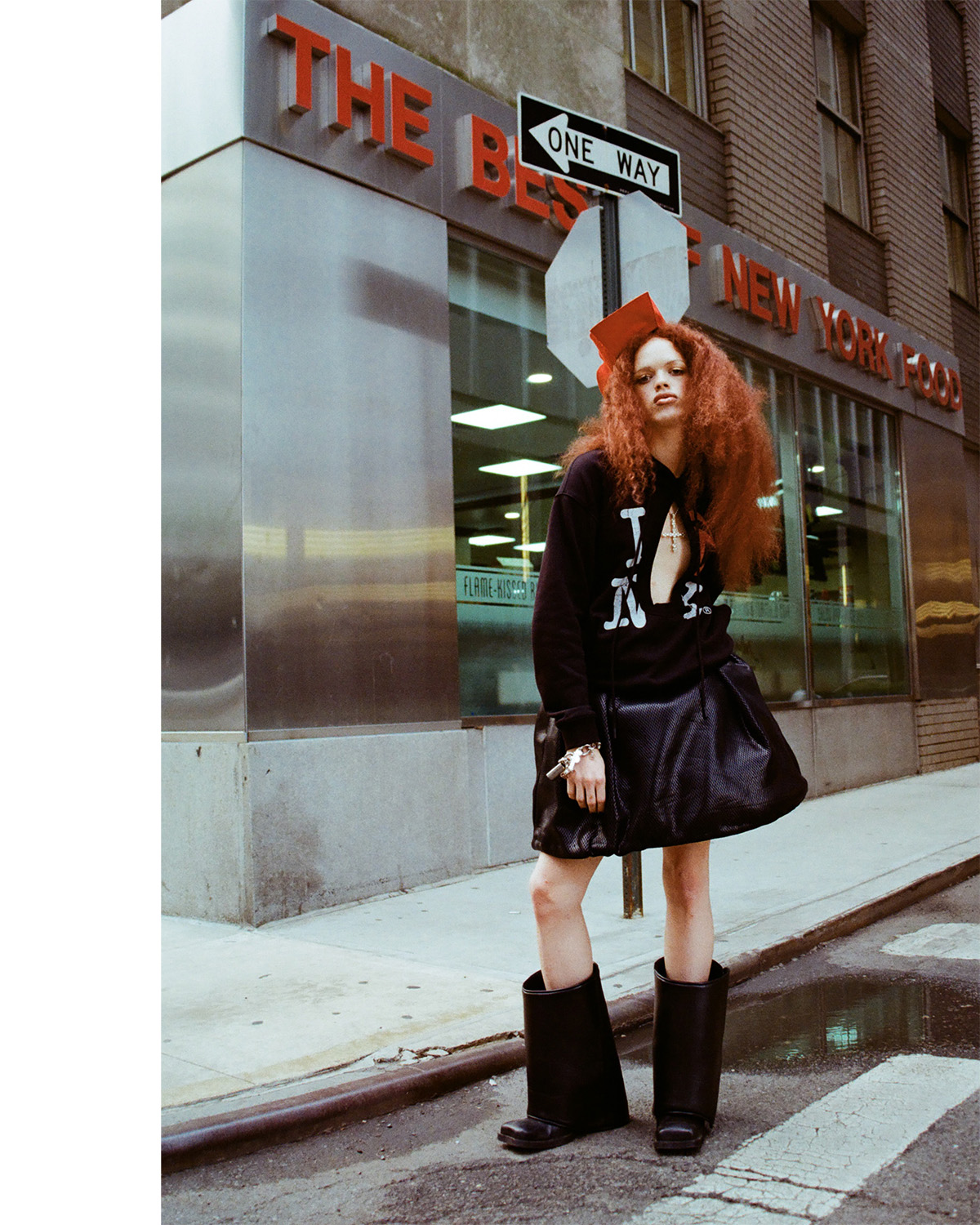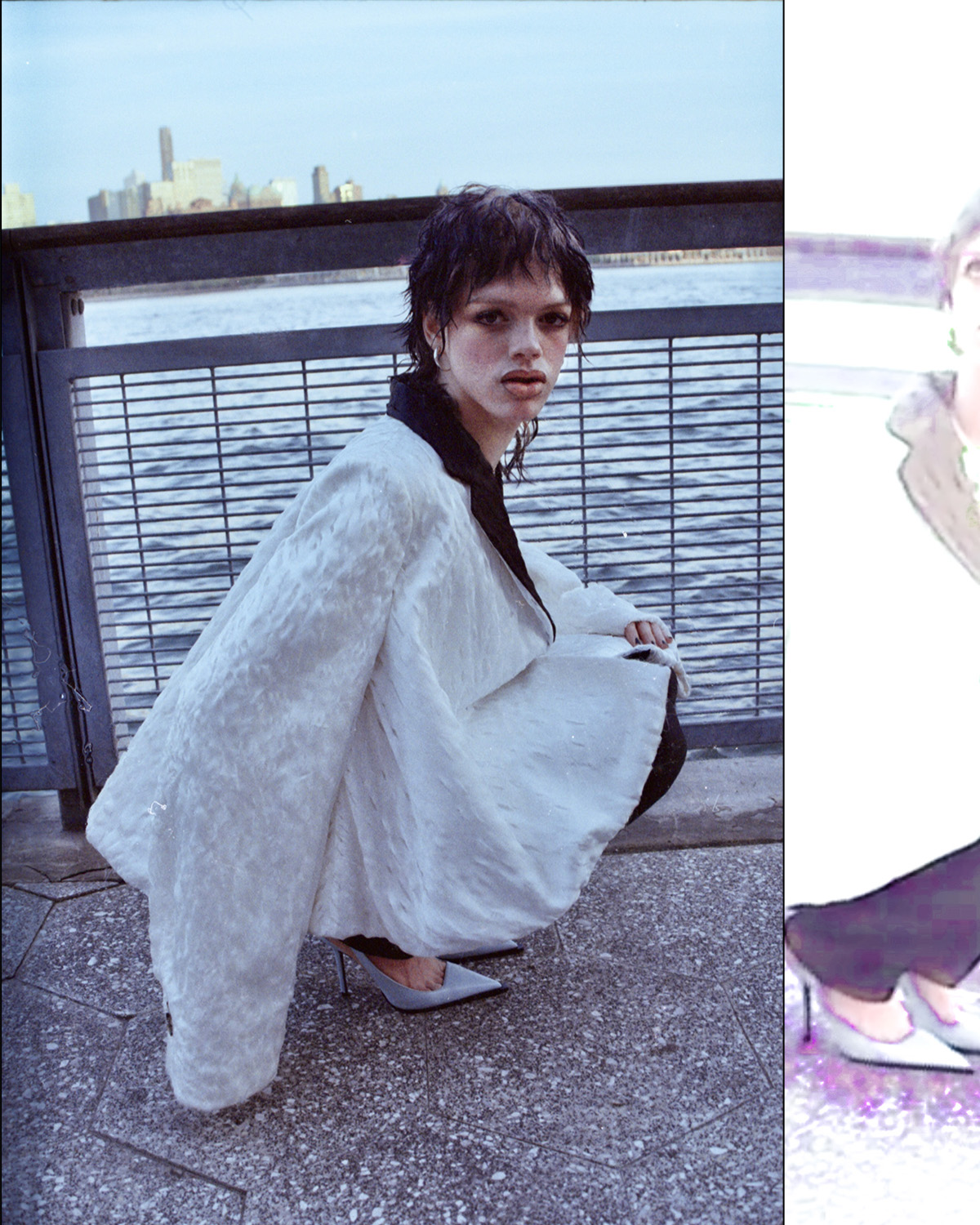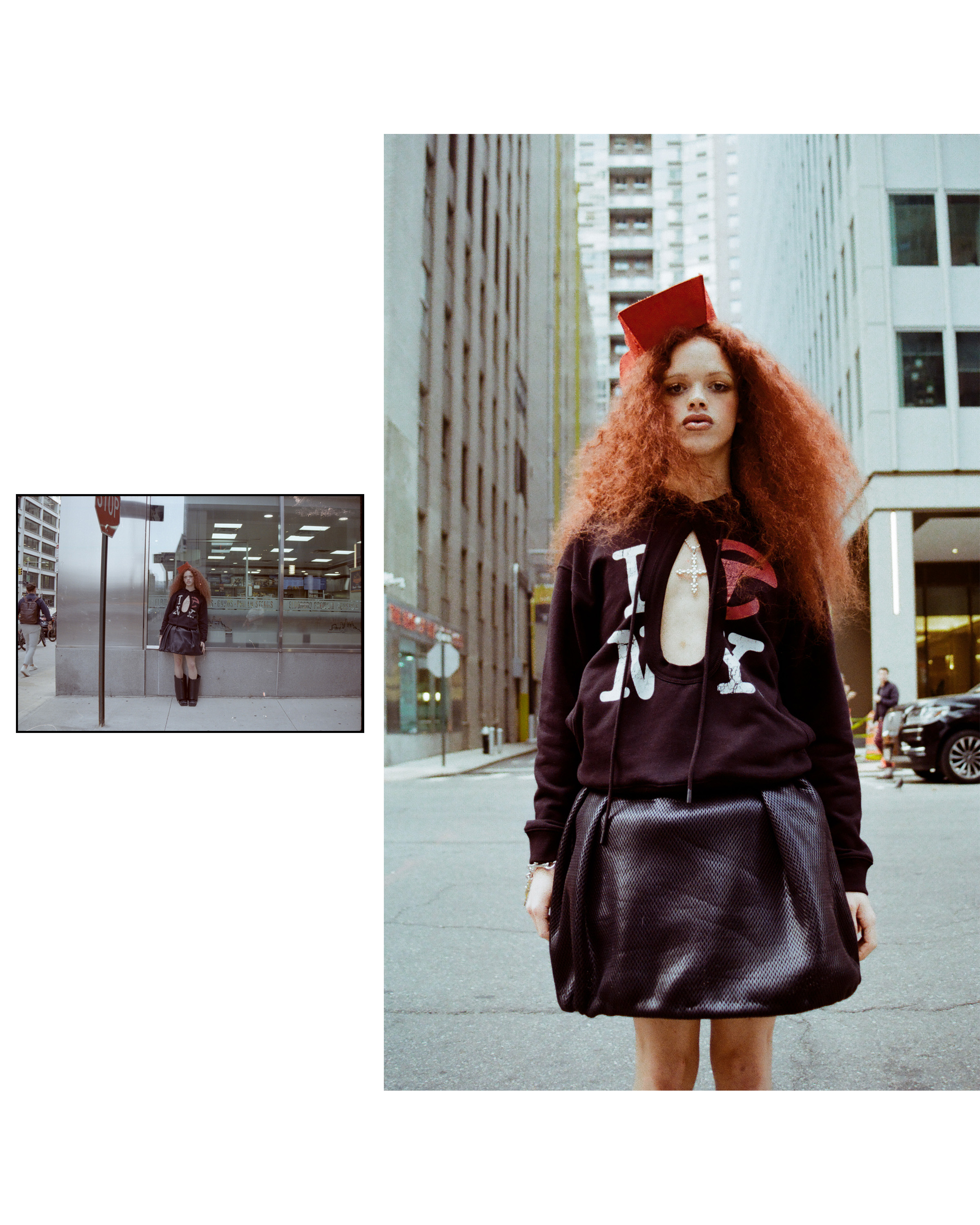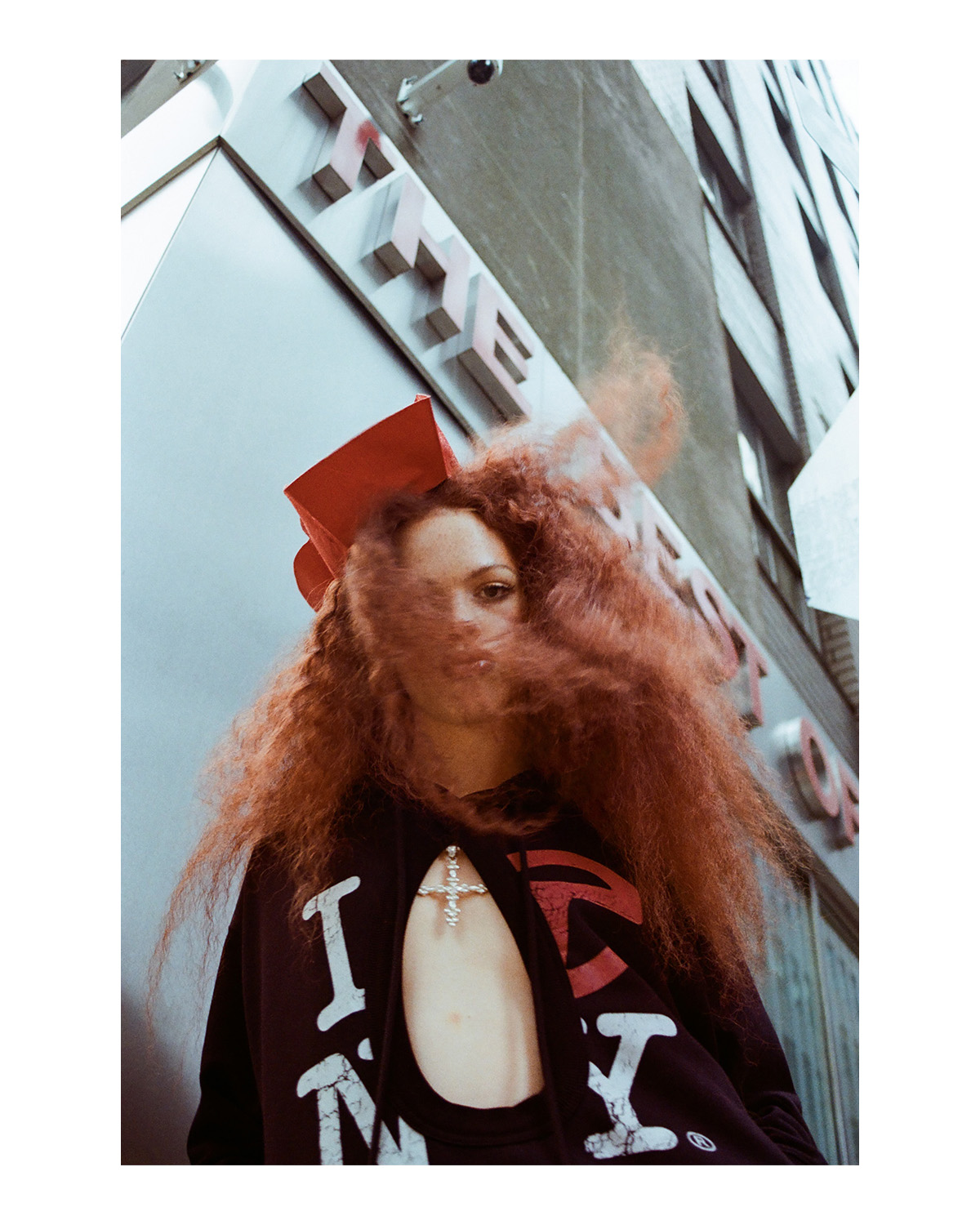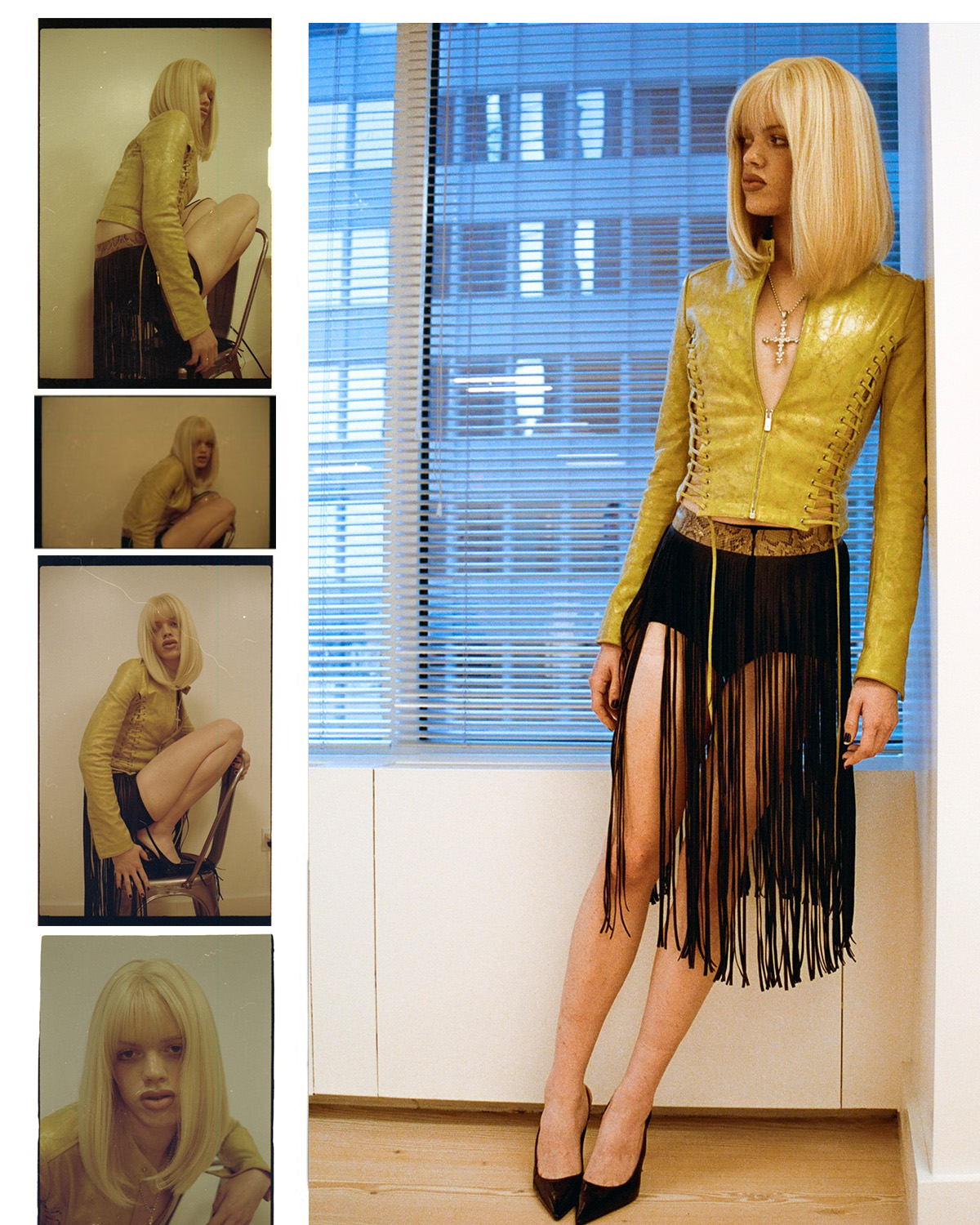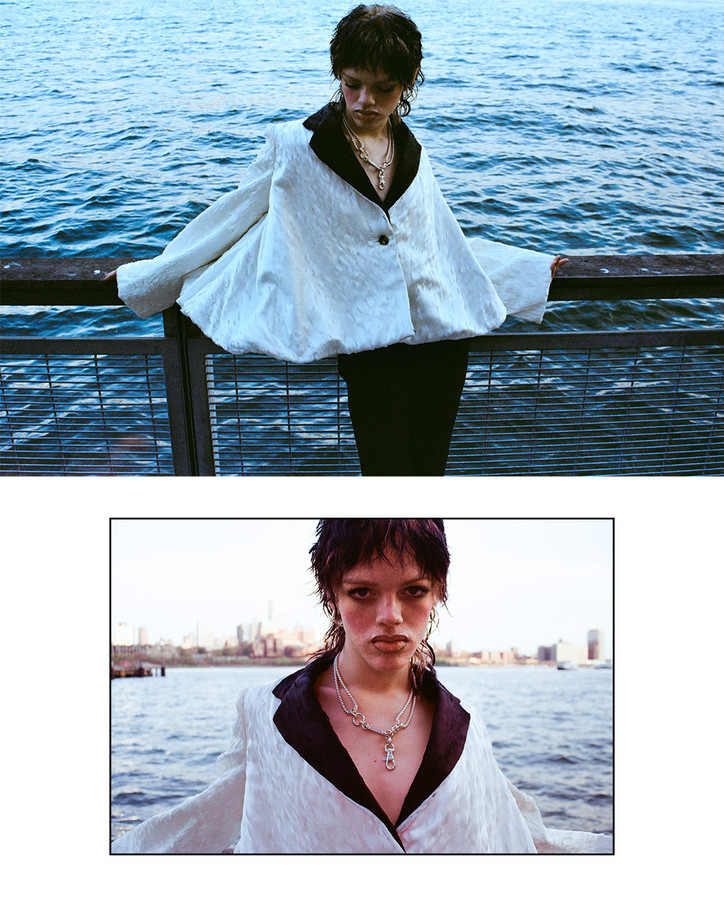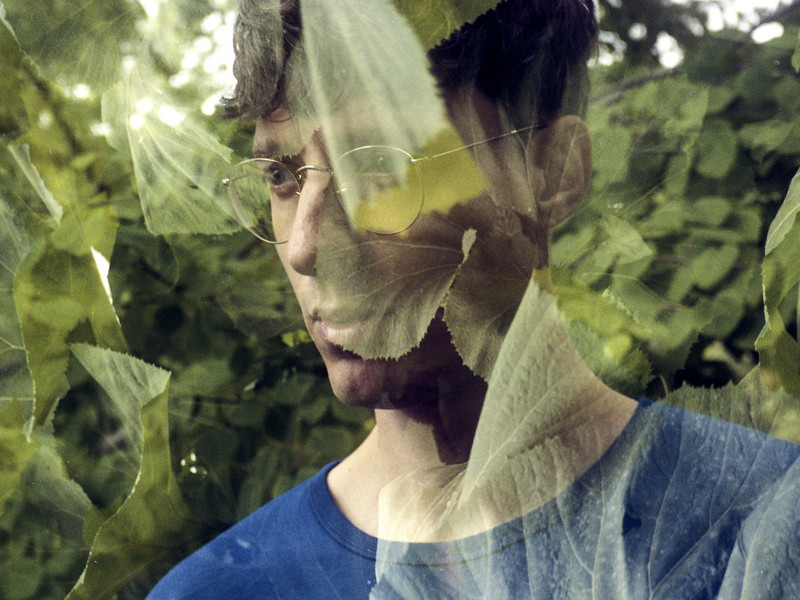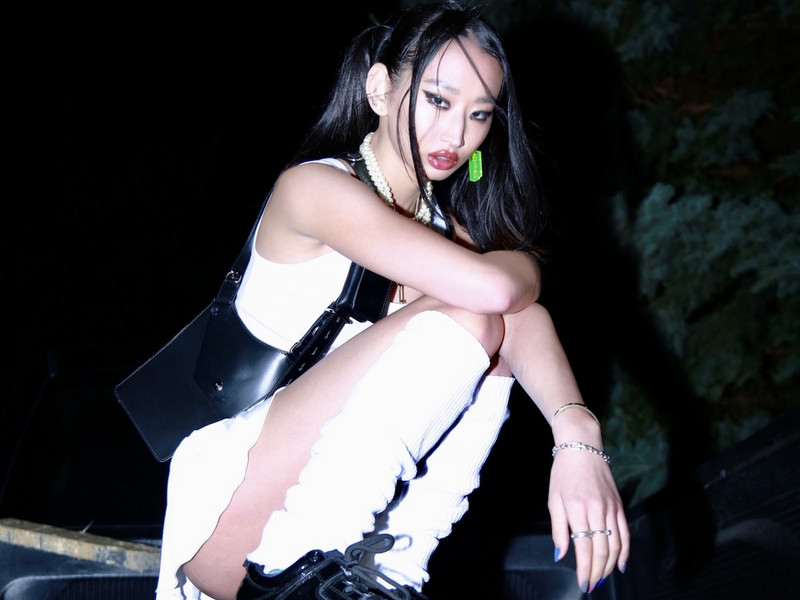Kirk Knight
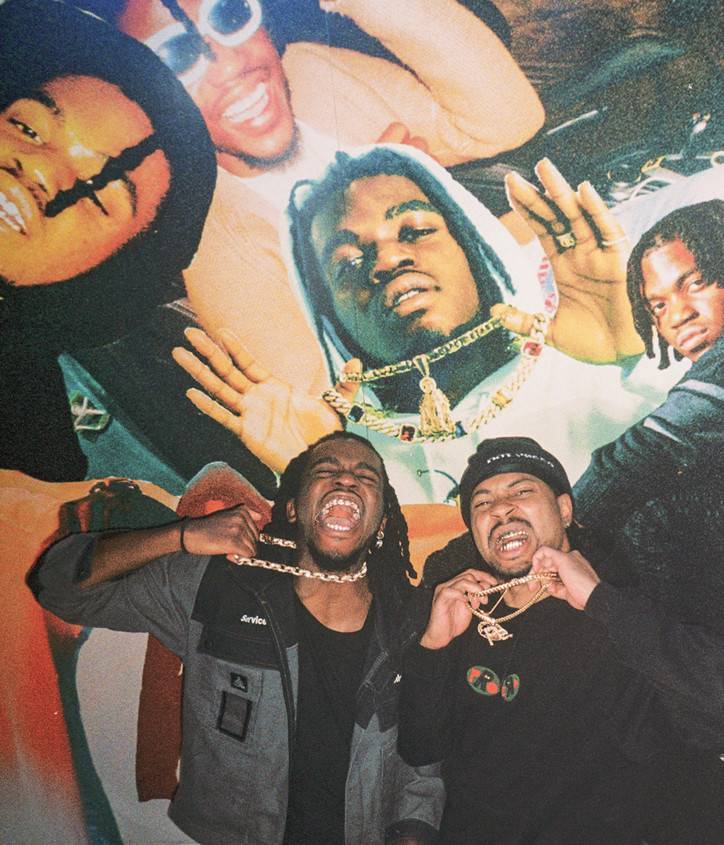
office sat down with the artist at his IIWII release party in New York City. Read our interview and peep the photos below.
There are a lot of exciting things happening for you right now. Tell me a bit about them.
I was just on tour with Flatbush Zombies—we did the U.S. tour in April then we went back on tour for the Europe run that ended on October 30. Now, I’m back in town, about to move into my new crib today. So, with my birthday coming and my album dropping—mad shit is going on.
You must be excited. How are you feeling about the album?
I don’t really have any expectations, for real for real, because at the end of the day, it’s the best representation of me. Its self-produced, I’m writing all the songs and there’s no features. If I hear something bad, I use it only as constructive criticism to get better, you know? I just want to give the fans something new that’s not three years fucking old like Late Knight Special. I wanted to give them an update of my life and in that sense, I don’t really look at it as something to be judged.
How do you think you’ve evolved since Late Knight Special?
I’ve evolved in a lot of ways—especially in production. You have to realize—Pro Era is known for ‘90s stuff, so me making “Plain Jane” made me cross over into a whole different world. I started understanding different tempos and making beats at 130/140 and still having the essence of old school sounding shit. I don’t know, this is at least the shit that Ferg tell me.
That’s not a bad person to be getting a compliment from.
Right? So, I’m like ‘Shit, I’ll just keep doing it then.’
Do you think that your style is a result of being born and raised in Brooklyn?
Yeah, of course. There’s Wu Tang, Biggie—there’s so much inspiration—especially RZA for me, and yeah, I’ll say Hov because he was the gospel for every Brooklyn kid. On a New York tip, they got the grunge and the grime out of something and it doesn’t necessarily have to be melodic —there could just be something in the beat for texture, something that gives it a different type of movement. I remember when I was in the studio with RZA and I say this in almost all of my interviews, but the best advice I’ve ever heard in my life—and I don’t really like advice—but coming from RZA you really got no choice. I had trouble not being able to professionally play keys, but still making beats, and as a producer, I felt like that kind of defeated the purpose of everything because I didn’t really know how to play. He told me, ‘You can feel that way, but at the end of the day, let me tell you, I went platinum before I knew how to play any key.’ So, it definitely worked.
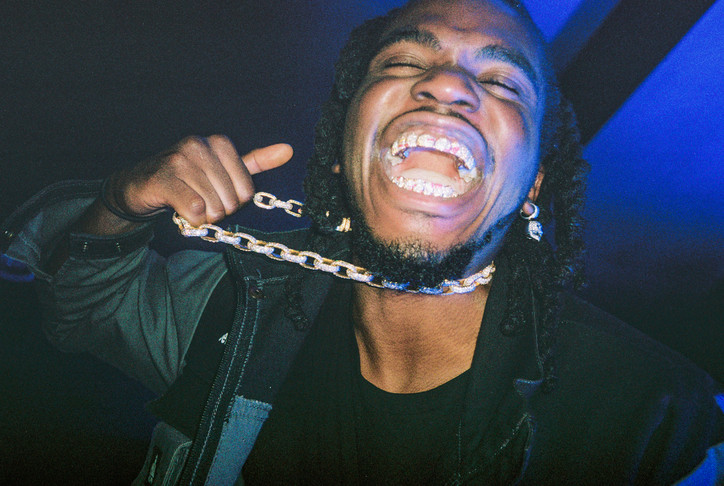
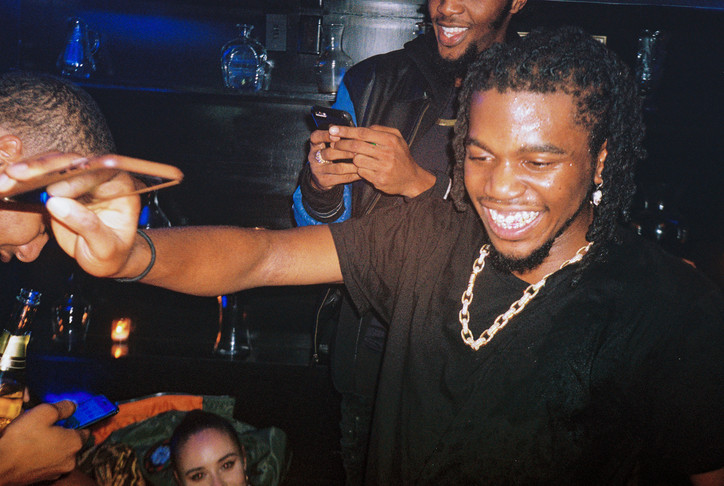
Absolutely. And even if not on a ‘professional’ level, you obviously have a strong understanding of music. You related making music to different textures, can you explain that?
It’s like, people forget that music initially was made to make you move your body. So, I’ll layer three high hats, but one is probably three milliseconds off, and another one is on beat, and the last one is on reverse. The combination of all three is going to give you a texture that you probably aren’t used to. That’s why right now I love Afrobeats—all these different percussions giving you such a specific soundscape. Texture is what makes you feel a certain way when listening to music that you necessarily can’t really explain with words.
Those small nuances are definitely hard to pick up on, especially when something sounds so fluid.
Yeah, like even this Frank Ocean song right now—what’s making it really stay with you is the reverb. That’s why a lot of singers have a lot of echo. Imagine that voice in your head echoing, you know? I look at music very psychologically—that’s why Drake doesn’t do a lot of adlibs—because at the end of the day, he wants it to be a one on one with him just rapping.
If you had to psychoanalyze your own music, what would your consensus be?
Mine would be that this person I’m listening to is definitely not scared to bounce between the skills that he’s good and not good at—I feel like that’s basically the way I do it. I’m the type of person to mix the percussion from house and garage with trap shit. Me listening to myself, I’d say, ‘Oh, he’s inspired by a lot of different genres, because he’s crossbreeding elements from EDM, all this shit, and applying it to the thing he loves, which is labeled as hip-hop.’ But I can’t really give it a genre because there are so many combined elements where I try to define an abbreviation of myself.
That stance really leaves space for endless possibilities.
Exactly. One day I’m DJing, the other I’m producing, songwriting, rapping—there’s so many things I’m capable of so why put myself in a box? I don’t want to be defined by a genre, I want to express each chapter of my life to the point where people can point out the various influences that inspire me throughout different stages. I feel like its ill because then my audience can string different things together like, ‘Oh you got this from that?’ Like you said—endless possibilities. I don’t always want to talk about pussy, money, weed and shit.
Drawing on so many influences, as a producer, writer and rapper, what’s the music-making process like for you?
It can start literally from anywhere. I made “Plain Jane” with Ferg because he was playing me a voice memo and rapping overtop of “Slob on my Knob,” but it was like, in the background. So, I didn’t hear it as well. What I did was, I took out the vocals of the voice memo, so there wasn’t that much beat. I was pitching up all his highs and his mids a little bit, and then I made the beat under what he was doing. I figured out what key it was in, then just made the beat right under it. I put it in the program and worked backwards instead of being like, ‘Yo what’s the vibe?’ The beat wrote to me, you know what I’m saying? It was the first time I ever really did it and it went platinum, so it really made me feel like a producer—not everybody can start with someone’s vocals and work backwards. And this goes out for anyone who wants to collaborate with me—anything you want to throw at me, I can do it.
Does it always happen that way?
It depends on the person. I really love Ferg—that’s big bro—but not everyone has that energy. Some people are weird or standoffish, or think they’re too good. It’s all about being selfless and open and understanding that we’re all trying to come with the same agenda, which is expressing the most authentic version of you that’s possible.
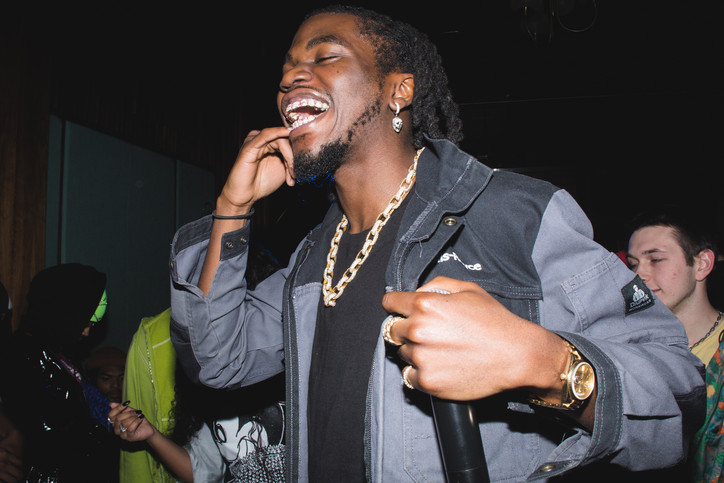
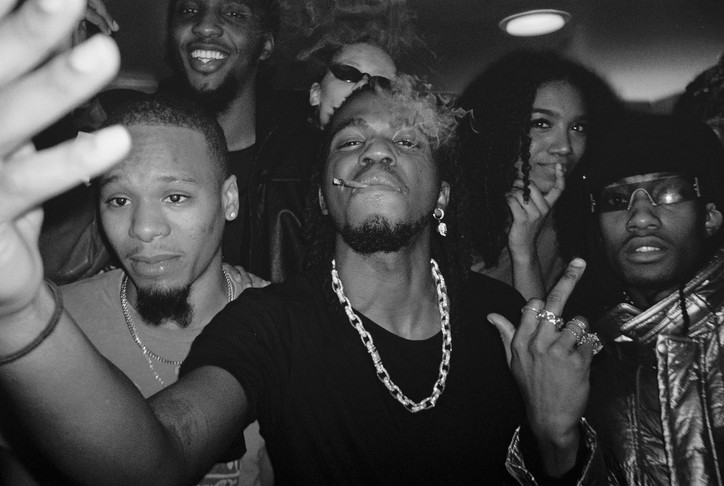
Was that method difficult when you applied it to yourself since your new record was entirely self-produced?
It was definitely harder, especially coming off the fact that our subject matter when we were younger was a lot about spirituality and crystals. It’s now more a coming of age type of story—with crystals come rent and bills. It’s still me, but things have definitely changed.
Is there a line that you try not to cross when you’re writing in terms of your personal life?
There’s definitely a huge line, because then you’re gonna have a situation with fans where they feel like they know you and want to start directing your creativity. I try to be as vulnerable as possible, but keeping a mystery about me, as well. This is why I’m highly inspired by Frank Ocean, for example. He’s a person who relays emotion through his relationship to objects instead of giving off detail about himself and his personal life. It’s all about find that balance with yourself. But Frank Ocean is great—he’s one of the few people that I feel like I know without knowing him.
Speaking of fans, how’s tour life for you?
I said this mad times—being a touring artist is way more fire than being any other artist. Touring is dope because you’re literally having a one on one with your fans every night.
It must be pretty humbling.
You wanna know what touring is? It’s closure—that’s the realist shit I can say about touring. You literally see your work being paid off. You run off the stage, you see a bag. You go onto stage, you see people reciting your lyrics.
Is it overwhelming?
Yeah. Because you know, on top of it, artists go through so much shit. We’re judged on the daily, then we got Instagram where people are literally watching your life. They always feel entitled to ask you, ‘Oh you’re not on tour? What you been up to?’ Back then, remember, when Dr. Dre found out about Eminem—he didn’t even know he was white! At the end of the day, we are living in a totally different time where artist’s mentalities are constantly harassed or misunderstood, even if they are your fans. So, touring sort of eliminates the screen that social media builds. You know some people may comment on what I’m doing saying, ‘I don’t like the direction of your new shit,’ and I’m like, ‘Yo maybe you need to see the show and it will hit you different.’
Touring is also a second chance—it’s like, if you don’t like my music, you’re gonna like how I perform it. Maybe you’ll understand the thought process behind the choices I made. That’s why I applaud Travis [Scott] and Drake and all these dudes who put time into the stage shit to make it an experience for their audience.
Was it ever an option for you not to do music?
It wasn’t always music. I was always infatuated with it and I always had a natural rhythm to it, but I wanted to be a chemist actually. I was really good at science in general because it’s the practice of adding elements together, seeing the result, learning from it, then doing it again. It’s the point of discovery within science that interested me most—that and exploring the unknown. Just like I do with my music.
‘IIWII’ is out now.
